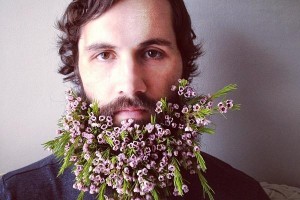If there’s one word every little boy knows, and feels deep in his bones, it’s ‘hero.’ But how can today’s modern men be the heroes of their own lives?
What does Macho mean?
It means pride in manhood. It means being happy about being a man. It can mean confidence, power, a dynamic energy that is unapologetically masculine.
In our society, Macho is hotly contested territory. The types of men—the stereotypes of men—that can express pride in themselves as men are limited and caricatured, and have been for a long time.
We all recognize these current incarnations of Macho, often presented as the only options for ‘successful’ expressions of masculinity. From the Gym Bro Guy, who drinks exclusively protein and pumps iron to perfect his Adonis-like physique, to the Super Successful Professional Guy with cold eyes and a colder solid gold watch, these expressions of male power aren’t exactly flexible or inclusive. Many guys, many men, simply don’t see themselves in the stereotypes of Macho, and therefore feel that they don’t have access to this basic human right: pride in yourself, for exactly who and what you are. A feeling that you are powerful, lovely, worthy and admirable.
The negative, boys-will-be-boys portrayals of macho are even more rampant. The juvenile, callous frat-boy, the woman-hating man, even the incompetent father more committed to his sports team and its fraternity of fans than to his family… these are the expressions of masculinity that today’s men have been meted out by popular culture.
They’re not enough. And they’re not good enough. Men deserve better.
Men are implicitly taught that they cannot be proud of or celebrate their masculinity unless they express it in one of these preapproved—and often unattainable—ways. But men aren’t a stereotype, and shouldn’t have to limit their self-expression to one of a handful of ‘societally approved’ masculinities.
There is an incredible movement happening today. Men are reclaiming their masculinity, and part of that is retaking the word Macho. The Good Men Project is at the forefront of this important work, as are broader social movements like embracing the Dad-Bod. More attention is focused on celebrating fatherhood as a valid expression of masculinity, and exploring the Sacred Masculine. The fact that maleness is represented in a negative way so often shows how urgent this work, this reclaiming, is.
Masculine energy is incredible, powerful, potent, admirable. I see so many men unable to express that in healthy ways. In ancient, esoteric teaching, masculine is the advancer, the stolid, the focus on the goal, the achievement, the action of humanity, of every human’s expression. When masculine energy is expressed in a generative, healthy way… well, we all know what it looks like. It’s heroics, heroism.
Heroes.
Even if a man doesn’t have a hero he admires and aches to be like now, he probably did when he was younger. The archetype of the Hero is one of the purest, most impressive incarnations of Sacred Masculinity. There is a Hero for everyone; each with different strengths, different weaknesses, different lessons learned and problems overcome, different soul-level, archetypal struggles and victories. Heroes are the original Macho.
Reclaiming Macho, to me, as an outsider, as a woman who loves and adores and admires men and masculinity, means acknowledging the hero in each man. It means seeing each man, seeing yourself, as a hero.
We all have to accept and embrace the masculine in ourselves and in the men we love, to overcome the trauma associated with toxic views of men and masculinity. This is a culture-wide work, because the portrayals of masculinity as toxic are culture wide.
When healthy channels of masculine expression aren’t available, this energy is thwarted, hurt, twisted. Violence, lethargy, shame, and even self-hatred result. That’s the legacy of the old Macho.
The new Macho, the prideful, loving acceptance and celebration of Masculinity and Men, is different. The efforts of so many men are making the new Macho about real strength, courage, kindness. These efforts are helping popular culture finally catch up to the experiences of real men in the world. Men can be proud of the beautiful masculine traits they have, and by celebrating those traits, become real heroes.



No Pings Yet